 Many people don’t notice that quotation books & quote websites are almost entirely dominated by quotes from men. This is a loss. In my continuing efforts toward inclusivity, here’s a collection of wise women’s words on loss. Absence becomes the greatest Presence. -May Sarton I still miss those I loved who are no longer with me but I find I am grateful for having loved them. The gratitude has finally conquered the loss. -Rita Mae Brown No emotion is the final one. -Jeanette Winterson Those who don’t know how to weep with their whole heart don’t know how to laugh either. -Golda Meir There are some griefs so loud They could bring down the sky, And there are griefs so still None knows how deep they lie. -May Sarton Where you used to be, there is a hole in the world, which I find myself constantly walking around in the day-time, and falling into at night. I miss you like hell. -Edna St. Vincent Millay Grass grows at last above all graves. -Julia C.R. Dorr When you’re away i feel like i’m only wearing one shoe. Alta I hope you’ve found a quote you hadn’t previously appreciated. If so, please spread it around. Big thanks to this week’s sources: The New Beacon Book of Quotations by Women. Bartleby, KnowYourQuotes, Quotemaster, & ThoughtCatalogue.
8 Comments
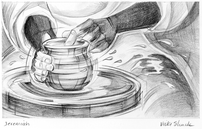 Change is in the air. Okay, so change is always in the air, but what with this ever-morphing airborne virus, change is truly, really in the air. Here's hoping whatever variant comes next, it's more a good change than a bad change. To that end, here are some wise women’s thoughts about change: I never wanted what I thought I wanted But always something else Which changed again as soon as I had found it. -Mary Carolyn Davies Fluidity and discontinuity are central to the reality in which we live. -Mary Catherine Bateson Better never means better for everyone…it always means worse for some. -Margaret Atwood You must not change one thing, one pebble, one grain of sand, until you know what good and evil will follow on that act. -Ursula K. Leguin Once an old woman at my church said the secret is that God loves us exactly the way we are and that he loves us too much to let us stay like this, and I’m just trying to trust that. -Anne Lamott All birth is unwilling. -Pearl S. Buck May the next few changes in your life be good ones.. Big thanks to this week’s sources: Rosalie Maggio’'s The New Beacon Book of Quotations by Women,thinkexist.com, Women’s Press, & PennStateSustainability 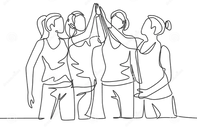 The headlines are filled with pundits' prognostications regarding somewhat distant upcoming elections. To counter the pontificating, here are some thoughts gleaned from folks wittier, wiser, & sometimes much snarkier than I. “An election is coming. Universal peace is declared, & the foxes have a sincere interest in prolonging the lives of the poultry.” -George Eliot “Though in paradise the lion will lay down with the lamb, in Paradise they will not have to submit their rival political views to general election.” -Amelia E. Barr “Money was the manure of politics.” -Barbara Michaels “The trouble with the rat race is that even if you win, you’re still a rat.” -Lily Tomlin “I’ve seen public opinion shift like a wind & put out the very fire it lighted.” -Rachel Field “The vote is a power, a weapon of offense & defense, a prayer.” -Carrie Chapman Catt “Women are young at politics, but they are old at suffering; soon they will learn that through politics they can prevent some kinds of suffering.” -Nancy Astor “A Platform is something a candidate stands for & the voters fall for.” -Gracie Allen May the pontification not get you down. And if you have comments about the quotes, please share them. Big thanks to this week’s sources: Jon Winokur’s The Portable Curmudgeon & Rosalie Maggio’s The New Beacon Book of Quotations by Women.  Last week’s post featuring some thoughts from a favorite author luminary led me to this week’s post. I’ll get back to etymologies and such next week, but for now, I hope you’ll have a good time with the ever-prolific & fascinating Ray Bradbury. Born in 1929 & leaving this universe we know in 2012, author of 500 works, Ray Bradbury won the Pulitzer Prize Special Citation, the National Medal of Arts, & the National Book Foundation Medal, & tons more. Known best as a science fiction novelist & short story author whose stories always valued character above technology, Bradbury also wrote TV scripts, poems, plays, & screenplays. Here is a tiny sampling of his thoughts: “We are an impossibility in an impossible universe.” “You have to know how to accept rejection and reject acceptance.” “We are cups, constantly and quietly being filled. The trick is knowing how to tip ourselves over and let the beautiful stuff out.” & “Every morning I jump out of bed and step on a landmine. The landmine is me. After the explosion I spend the rest of the day putting the pieces together.” I’m hoping some of you might choose a quote from above & have something to say about it in the comments section. Big thanks to this week’s sources: RayBradbury.com, SearchQuotes, BrainyQuote, & Quotes.net - photo from FamousAuthors.org 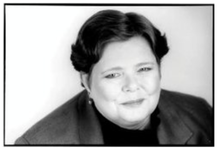 Tamora Pierce is a writer of middle grade & teen fantasy. Her books introduce readers to fascinating, intelligent, strong, female protagonists. Her books made a splash in 1983 & she's still going strong. We’ll celebrate by enjoying a few quotes from Ms. Pierce & her characters. From her novel Lady Knight Threats are the last resort of a man with no vocabulary. From her novel Page If arrogance were shoes, he'd never go barefoot. From her novel Squire Haven’t you ever noticed that people who win say it’s because the gods know they are in the right, but if they lose, it wasn’t the gods who declared them wrong? Their opponent cheated, or their equipment was bad. From her novel The Woman Who Rides Like a Man Men don't think any differently from women - they just make more noise about being able to. From various interviews: I distrust any advice that contains the words 'ought' or 'should'. Girls are 50% of the population. We deserve to represent 50% of the heroes. You look as scary as a buttered muffin. And from her story collection Tortall and Other Lands: A Collection of Tales Without reading, we are all without light in the dark, without fire in the cold. If you haven’t wallowed around in the fantasy worlds of Tamora Pierce, I highly suggest you put her on your reading list. Big thanks to this week’s sources Dare to Be Stupid, The Atlantic, Goodreads 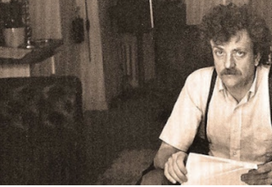 November of 1922 brought the unsuspecting world Kurt Vonnegut. He didn’t have much to say initially, but as time progressed he proved to be a brilliant author, thinker, master of satire, dark humor, & pointed social commentary. This November 11 would be his 98th birthday. I’d like to celebrate with a tiny slice of what he had to say. True terror is to wake up one morning and discover that your high school class is running the country. Be careful what you pretend to be because you are what you pretend to be. I want to stand as close to the edge as I can without going over. Out on the edge you see all kinds of things you can’t see from the center. Here we are, trapped in the amber of the moment. There is no why. I want to congratulate librarians, not famous for their physical strength or their powerful political connections or their great wealth, who, all over this country, have staunchly resisted anti-democratic bullies who have tried to remove certain books from their shelves, and have refused to reveal to thought police the names of persons who have checked out those titles. So the America I loved still exists, if not in the White House or the Supreme Court or the Senate or the House of Representatives or the media. The America I love still exists at the front desks of our public libraries. Make love when you can. It’s good for you. The universe is a big place, perhaps the biggest. Oh, and then there’s Slaughterhouse-Five, Welcome to the Monkey House, Cat’s Cradle, Breakfast of Champions, Player Piano, A Man Without a Country, & a stunning & steaming heap of essays, articles, short stories and novels. Have a favorite Vonnegut work or quote? Please leave it in the comments section. Big thanks to this week’s sources: Curated Quotes, Vonnegut.com, The Christian Science Monitor, Karen Cushman, & NPR. Image from pastdaily.com.  Read any news source these days, & you finish reading with more questions than you started with. So this post we're looking into questions. Indira Gandhi said, “The power to question is the basis of all human progress,” whereas L.E. Landon wrote, “Curiosity is its own suicide.” The noun question came to English in the early 1200s, meaning a philosophical or theological problem. In the next century it added the meaning a difficulty or doubt, and by the 1500s we could use question as a verb. If we look back a bit further, things get a little dark. Question came from an Old French word meaning difficulty, problem, legal interrogation, or torture, which causes one to wonder about those Old French folk, as quaestionem, the Latin source of the Old French word, simply meant a seeking, a question, or judicial inquiry. Free of that more menacing shade of meaning are the words querulous & query, which came to English in the 1400s & 1500s as an adjective meaning quarrelsome & a noun meaning a question, from the Latin word quaerere, meaning to seek, strive, endeavor or demand. Query became a verb in the 1600s, meaning simply, to question. It would be fair to say that behind most questions & queries we find curiosity, a word that arrived in the language in the late 1300s, meaning both the desire to know or learn & careful attention to detail. Arriving about that same time was the word curious, which meant both inquisitive, & the somewhat less positive odd, anxious, & strange. During a spate in the 1700s when curious was seen to mean exciting curiosity, curious operated in genteel circles as a euphemism for erotic or pornographic. We’ll close off with author Fran Lebowitz’s addition to the conversation: “Children ask better questions than do adults. ‘May I have a cookie?’ ‘Why is the sky blue?’ and ‘What does a cow say?’ are far more likely to elicit a cheerful response than ‘Where’s your manuscript?’ ‘Why haven’t you called?’ and ‘Who’s your lawyer?’” Please use the comments section for any questions (or answers) about questions. Big thanks to this week’s sources: The New Beacon Book of Quotations by Women. Merriam Webster, Wordnik, Etymonline, & the OED. 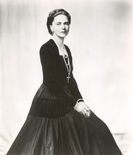 Last week we took a look at words descended from the Proto-Indo European word duwo or dwo, meaning two. It seems a posting regarding two calls for a partner post, so this week we’ll take a look at a few things intelligent women have said about twokinds of people. In an attempt to decrease redundancy, I’ve started each quote midstream after the author wrote something along the lines of, “There are two kinds of people…” “…those of us who are trying to escape from something & those of us who are trying to find something.” -Ileana, Princess of Rumania “…those who live for their outsides & those who live for their insides.” -Francesca Bendeke “…the settled & the nomad -- & there is a natural antipathy between them, whatever the land to which they belong.” -Freya Stark “…those who have known inescapable sorrow & those who have not.” -Pearl S. Buck “…the people who lift & the people who lean.” -Ella Wheeler Wilcox “…those who live poor on a lot & those who live rich on a little.” -Marcelene Cox “…those who think there are two kinds of people & those who have more sense.” James Tiptree, Jr. (Alice Bradley Sheldon) So good readers, does the world divide into dualities, or does that last quote from Ms. Sheldon (or Mr. Tiptree if you prefer) hit the nail on the head? My thanks go out to this week’s sources: The Beacon Book of Quotations by Women & Tiptree.org 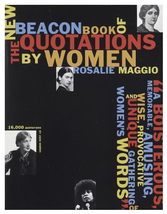 My two all-time favorite quotation books are Carolyn Warner’s The Words of Extraordinary Women, & Rosalie Maggio’s The New Beacon Book of Quotations by Women. It fascinates & saddens me that the brilliant bits between these covers seldom appear in most books of quotations, or internet quotation sites. Here are some food-related quotes from these two fine resources: Fran Lebowitz – Food is an important part of a balanced diet. Patricia Hampl – When we eat / we are like / everyone else Ayn Rand – Ah, there’s nothing like tea in the afternoon. When the British Empire collapses, historians will find that it had made but two invaluable contributions to civilization—this tea ritual and the detective novel. Erica Jong – Eating is never so simple as hunger. Fran Lebowitz – Cheese that is required by law to append the word food to its title does not go well with red wine or fruit. Julia Child – Noodles are not only amusing but delicious. Sarah J. Hale – There is small danger of being starved in our land of plenty; but the danger of being stuffed is imminent. Sara Peretsky – All food starting with a p is comfort food . . . pasta, potato chips, pretzels, peanut butter, pastrami, pizza, pastry. Peg Bracken – Molded salads are best served in situations where they have little or no competition. Joan Gussow – As for butter versus margarine, I trust cows more than chemists. Isak Dinesen – Coffee, according to the women of Denmark, is to the body what the word of the Lord is to the soul. Which quote hits closest to home? Which one coaxes a smile out of you? Please leave a comment. My thanks go out to this week’s sources: The Words of Extraordinary Women, & The New Beacon Book of Quotations by Women. 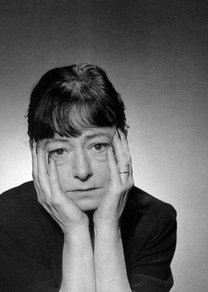 I’ve always had a somewhat twisted fondness for author, poet & critic, Dorothy Parker (1893-1967). Generally, I try to see the silver lining, take the high road, and all that. However, when it comes to searingly mean wit of Dorothy Parker, I throw silver linings & half-full glasses to the winds & revel in her wickedness. Below are some of my favorite Dorothy Parkerisms. “The first thing I do in the morning is brush my teeth and sharpen my tongue.” “This is not a novel to be tossed aside lightly. It should be thrown with great force.” “Beauty is only skin deep, but ugly goes clean to the bone.” “She runs the gamut of emotions from A to B.” “If you want to know what God thinks of money, just look at the people he gave it to.” “By the time you swear you're his, Shivering and sighing. And he vows his passion is, Infinite, undying. Lady make note of this -- One of you is lying.” “That woman speaks eighteen languages, and can't say 'No' in any of them.” “If all the girls attending [the Yale prom] were laid end to end, I wouldn't be at all surprised.” “That would be a good thing for them to cut on my tombstone: Wherever she went, including here, it was against her better judgment.” She’s the best (or would that be the worst?) I hope you’ll leave a comment or three. My thanks go out to this week’s sources Women’s History, GoodReads & DorothyParker.com |
I write for teens & tweens, bake bread, play music, and ponder the wonder of words in a foggy little town on California's central coast.
To receive weekly reminders of new Wordmonger posts, click on "Contact" & send me your email address. Archives
November 2023
|

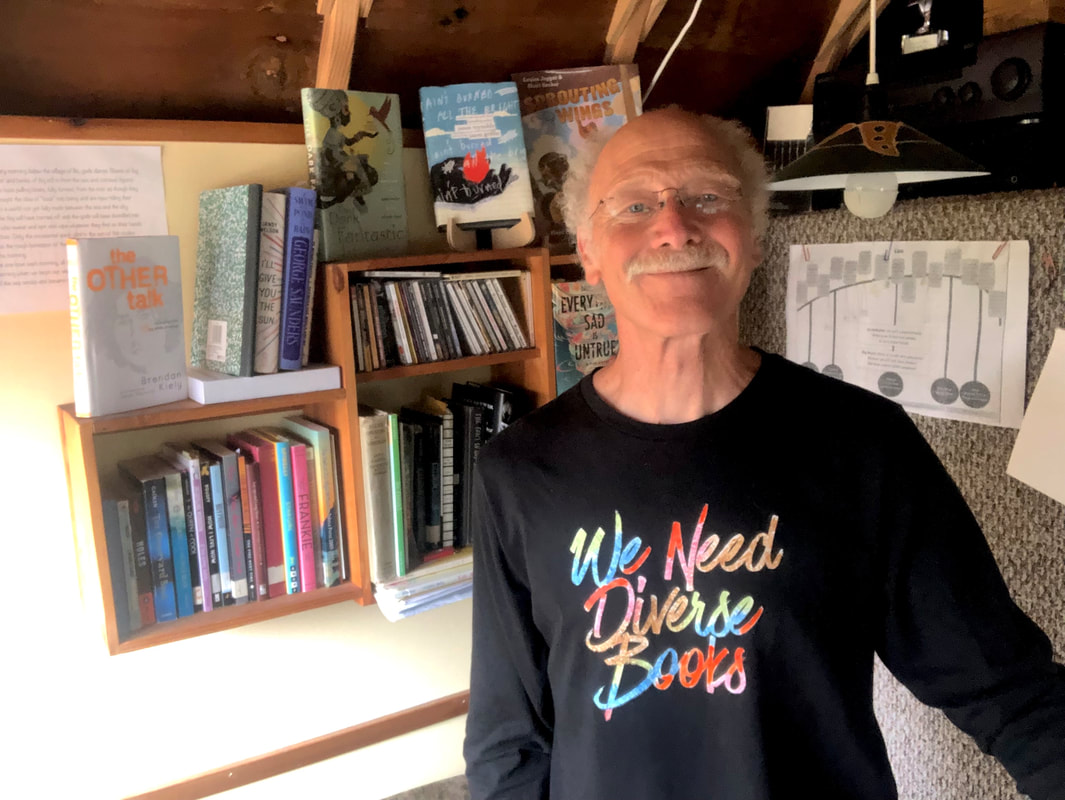
 RSS Feed
RSS Feed